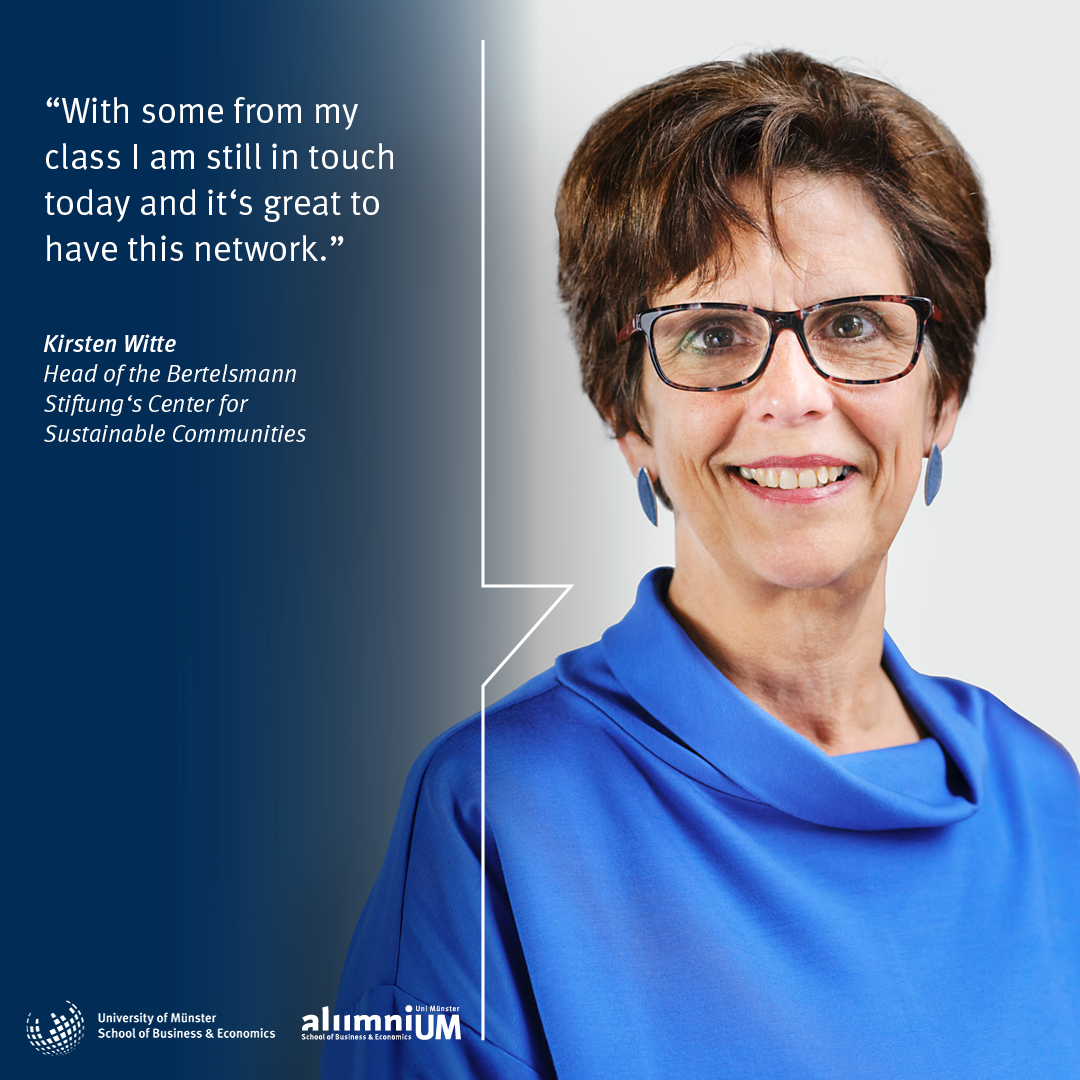Alumni Story: Kirsten Witte

We live in an ever-changing world with societal changes occurring in a wide range of areas. The Bertelsmann Foundation stimulates debates and provides impulses for changes in society through its projects, studies, and events. The foundation, based in Gütersloh, is politically, economically, and culturally committed to the common good. The daily work topics include changes in areas such as democracy, digitization, health, and sustainable social market economy. Our alumna Dr. Kirsten Witte has been the Head of the Bertelsmann Stiftung's Center for Sustainable Communities for nearly 14 years. After studying economics at Saarland University and the University of Münster, Kirsten Witte earned her doctorate at the Chair of Economic Theory at the School of Business & Economics. Upon completing her doctorate, Dr. Witte initially served as the head of economic development for the city of Münster before taking on her current position at the Bertelsmann Foundation. We are excited to learn more from Dr. Kirsten Witte about her work at the Bertelsmann Foundation.
Dear Dr. Witte, what does a typical workday look like for you, and what activities do you undertake as the head of the Center for Sustainable Communities?
The work at the foundation is very varied. Some projects are more research-based, where we discuss study designs and results with scientists. Other projects are application-oriented, where we conduct workshops in and with communities to try out new ideas or methods. Of course, there are also the usual tasks: giving presentations, interacting with employees, colleagues, and board members, processing emails, etc.
You deal with a wide range of societal issues that are constantly subject to significant change. Which areas particularly interest you?
We deal with sustainability, which we define comprehensively according to the UN, encompassing social, economic, and environmental issues. In fact, communities are involved in almost all topics. Personally, I am particularly interested in administrative reform because my impression is that communities, but even more so federal and state administrations, are rather resistant to change. The digitalization, in particular, offers many opportunities to make public administration more agile.
What are the biggest challenges in your current role? Working on sustainable development topics surely presents frequent problems and challenges.
We can't get the horsepower to the road. Much has been researched and there are many good examples, but public acceptance, especially for climate protection, is very low beyond lip service. In addition, communities simply lack the time and money to deal with voluntary tasks—unfortunately, sustainability is one of them—due to dealing with refugees, the heating transition, energy crisis, legal entitlement to all-day care, etc.
What advice can you give our students?
Be open to new things and to "horses that gallop by." It was by no means clear to me after my studies that I would work at a foundation or deal with community issues. I did it because the opportunity arose, and I have never regretted it. If I had had a fixed plan, I probably wouldn't have seized the opportunity, and who knows if the fixed plan would have been realized.


